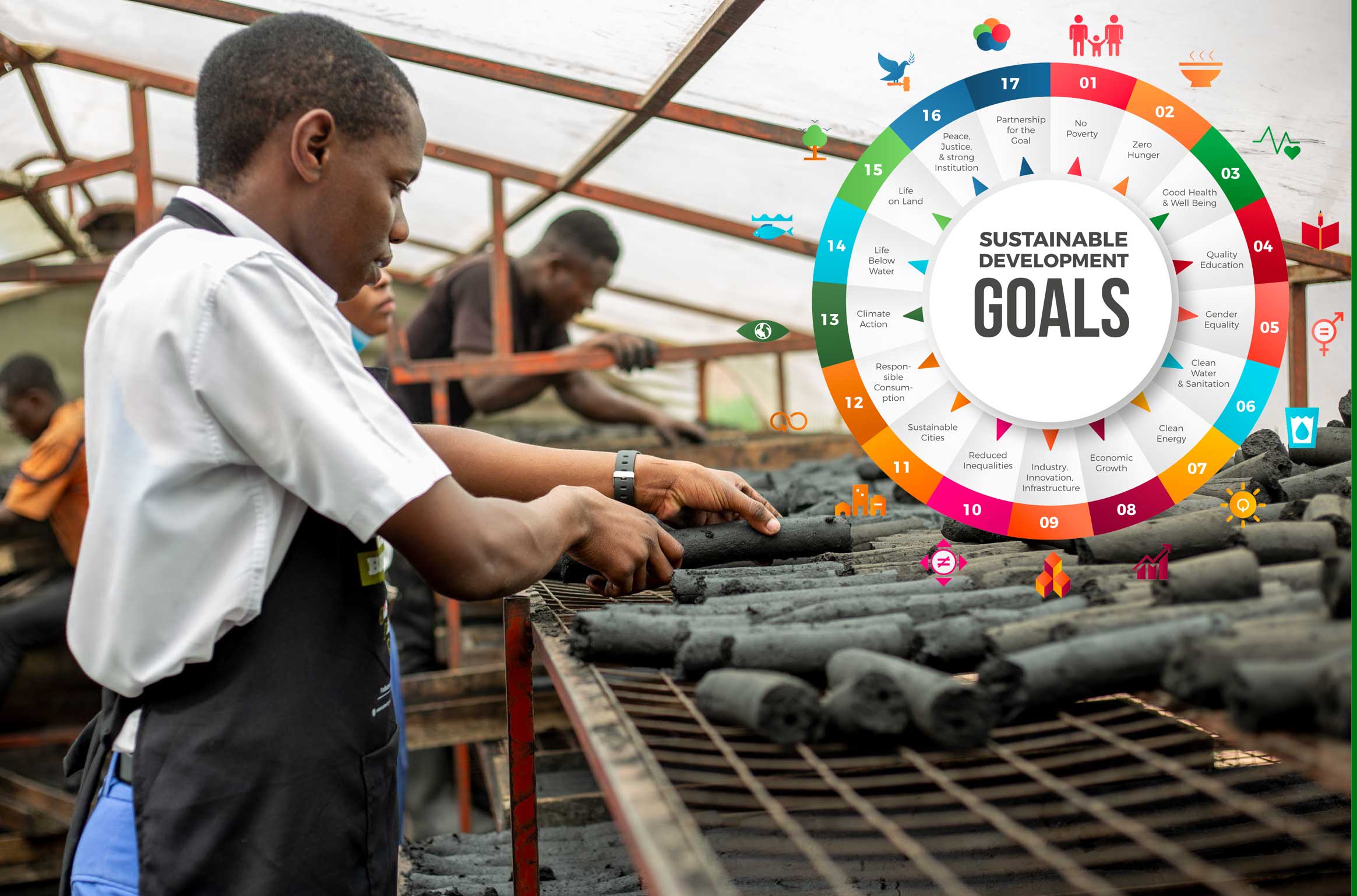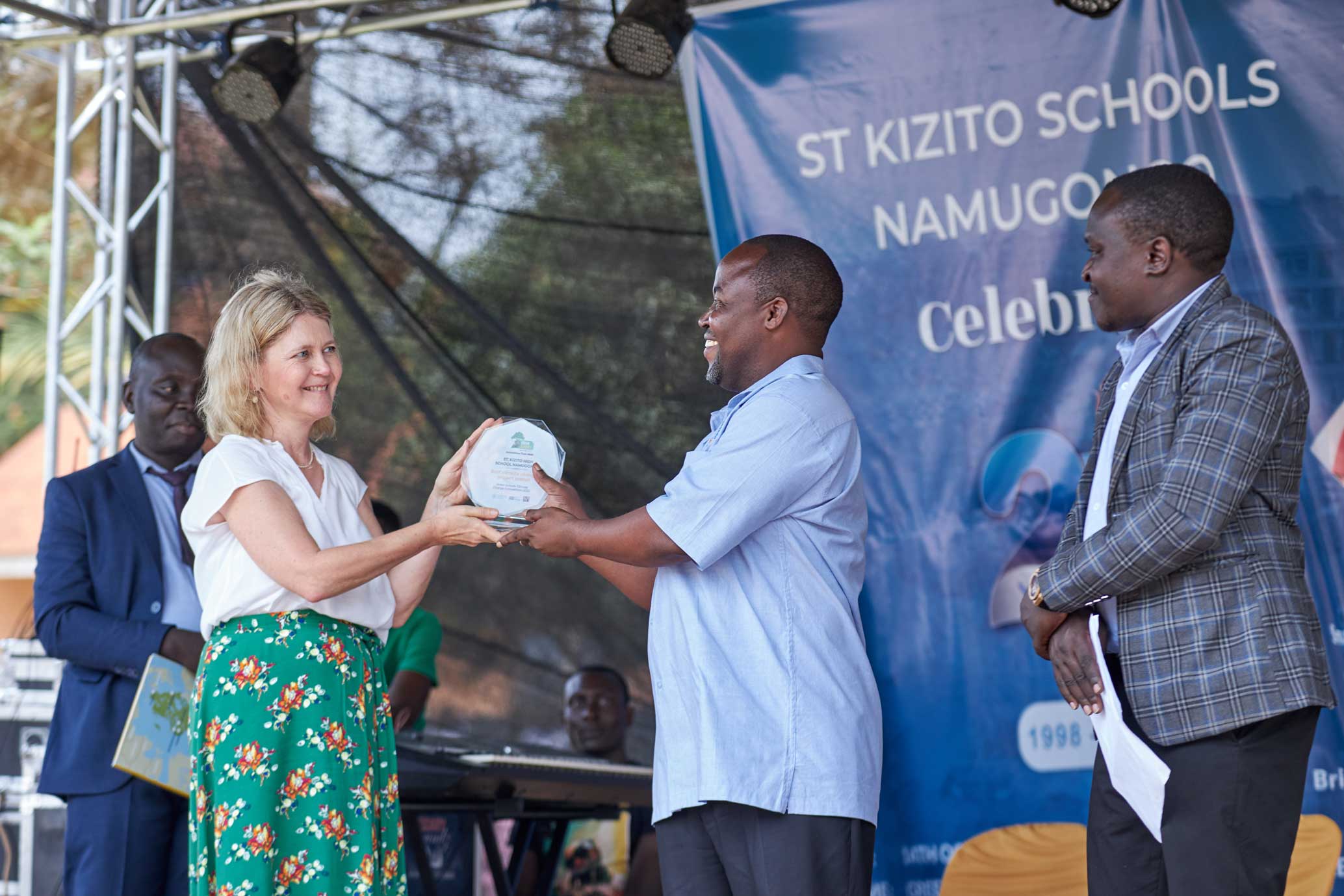Sustainable Development Goals
About
At our school, we embrace a profound commitment to the Sustainable Development Goals (SDGs) as our guiding principles. These global objectives serve as the compass for our educational initiatives and projects, steering us toward a future where we actively participate in creating a better world. From sustainable agriculture to responsible energy use and innovative recycling methods, our school stands as a beacon of progress, aligning our efforts with the broader mission of achieving these vital SDGs.
Here’s how the school’s various projects connect to the United Nations Sustainable Development Goals (SDGs):
Briquettes Production:
SDG 7 – Affordable and Clean Energy: By using briquettes as an efficient and sustainable energy source, the school contributes to reducing the reliance on traditional and polluting energy sources, aligning with the goal of ensuring access to affordable, reliable, and modern energy for all.
SDG 11 – Sustainable Cities and Communities: Our waste management efforts align with Target 11.6 by actively working to reduce waste generation, promote recycling and responsible waste disposal, and raise awareness about the environmental impact of waste within the school community and, by extension, the city.
SDG 13 – Climate Action: the use of briquettes supports SDG 13 by reducing greenhouse gas emissions, improving energy efficiency, preserving forests, decreasing air pollution, enhancing climate resilience, and promoting resource conservation.
Fish Farming:
SDG 2 – Zero Hunger: The school’s fish farming project promotes food security and nutrition, as it contributes to local food production and provides a source of protein for the community, thus supporting the goal of ending hunger and achieving food security.
SDG 14 – Life Below Water: Our school’s sustainable fish farming practices help protect aquatic ecosystems and contribute to the conservation of life below water. It also helps reduce pressure on large water bodies by providing alternative sources of fish.
Plastic Waste Recycling:
SDG 12 – Responsible Consumption and Production: Recycling plastics and creating useful products aligns with the aim of ensuring sustainable consumption and production patterns by reducing waste generation and promoting resource efficiency.
SDG 13 – Climate Action: Recycling plastic waste diverts plastics from landfills and incineration. When plastics decompose in landfills, they can release methane, a potent greenhouse gas. By reducing the volume of plastic waste sent to landfills, recycling helps lower methane emissions. Extending the lifespan of existing materials also helps reduce the extraction and processing of raw materials, such as petroleum, which is associated with significant carbon emissions.
Smart Agriculture:
SDG 2 – Zero Hunger: By implementing smart agricultural practices, the school aims to increase agricultural productivity and enhance food security, directly supporting the goal of eradicating hunger.
SDG 15 – Life on Land: Smart agriculture can reduce land degradation and promote sustainable land use, which is vital for preserving terrestrial ecosystems and biodiversity.
No Poverty (SDG 1):
Our practical skills such as fish farming, briquette production, and bakery equips students with the ability to generate income. These skills offer them the opportunity to become economically independent and reduce the risk of falling into poverty.
Besides that, these skills also enhance the employability of our students. This, in turn, reduces the likelihood of unemployment and contributes to a stable income, which is crucial in the fight against poverty.
Quality Education (SDG 4):
By incorporating these projects into our curriculum, we provide students with practical and hands-on learning experiences, enhancing the quality of their education and preparing them for future challenges.
Our Practical skills programs also ensure that our students are equipped with skills that are not only relevant but also highly employable in the job market. This aligns with the SDG 4 target of ensuring that all learners acquire the knowledge and skills needed for employment and entrepreneurship.




